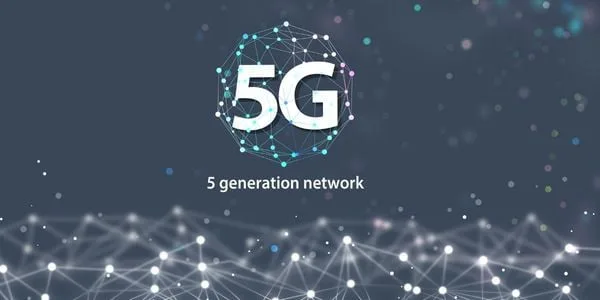AI-Powered Healthcare: Improving Diagnoses and Treatment
In recent years, the field of healthcare has been revolutionized by the integration of artificial intelligence (AI) into various aspects of medical practice. AI, with its incredible capacity to analyze vast datasets and recognize patterns, has proven to be a game-changer in improving diagnoses and treatment outcomes. This article delves into the fascinating realm of AI-powered healthcare, exploring how it’s transforming the landscape of medicine and benefiting both healthcare providers and patients.
The AI Revolution in Healthcare
What is AI in Healthcare?
Artificial intelligence in healthcare refers to the use of advanced computer algorithms and machine learning techniques to process and interpret medical data. This can encompass everything from analyzing medical images like X-rays and MRIs to predicting disease outbreaks based on epidemiological data. The primary goal is to assist healthcare professionals in making more accurate diagnoses, creating personalized treatment plans, and enhancing patient care.
The Power of Big Data
One of the core strengths of AI in healthcare lies in its ability to process and analyze vast amounts of medical data. Historically, doctors and researchers relied on their expertise and small-scale studies to draw conclusions about diseases and treatment options. With AI, they can now tap into enormous databases of patient records, medical literature, and real-time data from wearable devices.
Improving Diagnoses
Medical Imaging
One of the most significant areas where AI has made its mark is in medical imaging. Interpretation of images such as X-rays, MRIs, and CT scans is a complex and time-consuming task. AI algorithms can quickly analyze these images, identifying abnormalities and assisting radiologists in making more accurate diagnoses. This not only speeds up the diagnostic process but also reduces the risk of human error.
For instance, Google’s DeepMind has developed an AI system that can detect eye diseases like diabetic retinopathy and age-related macular degeneration from retinal scans. Such applications are making early diagnosis and intervention more accessible, potentially saving vision and lives.
Early Detection of Diseases
AI-powered predictive analytics are proving invaluable in identifying diseases at their earliest stages. By analyzing a patient’s medical history, genetic makeup, and lifestyle factors, AI can assess the risk of conditions like cancer, diabetes, and heart disease. This allows for timely interventions and more effective preventive measures.
Treatment Personalization
Tailored Treatment Plans
Every individual is unique, and their response to medical treatments can vary significantly. AI takes this into account by analyzing a patient’s genetic information and medical history to develop personalized treatment plans. For example, in cancer care, AI can help determine the most effective chemotherapy regimen based on the patient’s genetic markers, minimizing side effects and improving outcomes.
Drug Discovery
The process of developing new drugs is costly and time-consuming. AI is speeding up this process by analyzing vast datasets to identify potential drug candidates and predict their efficacy. This not only reduces costs but also accelerates the availability of life-saving medications.
The Benefits of AI in Healthcare
Enhanced Efficiency
AI has the power to streamline various administrative tasks in healthcare. From scheduling appointments to processing insurance claims, AI-driven systems can handle these tasks more efficiently, allowing healthcare providers to focus more on patient care.
Cost Savings
By reducing errors in diagnosis and treatment and optimizing hospital workflows, AI can significantly reduce healthcare costs. This is particularly crucial in a healthcare system grappling with rising expenses.
Improved Patient Outcomes
The ultimate goal of AI in healthcare is to improve patient outcomes. With quicker and more accurate diagnoses, personalized treatment plans, and predictive analytics, patients are more likely to receive the right care at the right time, leading to better results.
Telemedicine and Remote Monitoring
The COVID-19 pandemic accelerated the adoption of telemedicine, and AI played a crucial role in making it more effective. AI-powered chatbots and virtual assistants can provide initial assessments, while wearable devices with AI capabilities can monitor patients remotely. This not only increases accessibility to healthcare but also reduces the burden on in-person medical facilities.
Challenges and Concerns
Data Privacy and Security
As AI relies heavily on patient data, concerns about privacy and security have come to the forefront. It’s imperative to ensure that patient information is adequately protected and that AI systems comply with relevant data protection regulations.
Bias in AI
AI algorithms are only as good as the data they’re trained on. If the data contains biases, the AI system may perpetuate those biases. It’s crucial to continually monitor and mitigate bias in healthcare AI to ensure fair and equitable treatment for all patients.
Physician Acceptance
While AI has tremendous potential, it won’t replace human doctors. There may be resistance from some healthcare professionals who fear that AI will diminish their roles. The key is to educate and train healthcare providers to work alongside AI as a valuable tool.
The Future of AI in Healthcare
Predictive Healthcare
AI is moving towards predictive healthcare, where it can anticipate health issues before they become critical. This could involve monitoring physiological data in real-time and providing early warnings to both patients and healthcare providers.
More Precise Diagnostics
As AI algorithms become more sophisticated and data sets continue to grow, diagnostic accuracy will continue to improve. Conditions that were once difficult to detect, such as rare diseases, may become more accessible to diagnosis through AI.
Drug Development Breakthroughs
AI’s role in drug discovery will likely lead to the development of more targeted and effective medications. Personalized medicine will become the standard rather than the exception.
Conclusion
Artificial intelligence is fundamentally changing the way healthcare is delivered and experienced. From faster and more accurate diagnoses to personalized treatment plans, the benefits of AI in healthcare are profound. As the technology continues to advance, we can expect even more exciting developments, such as predictive healthcare and breakthroughs in drug development. However, it’s essential to address challenges like data privacy and bias to ensure that AI-powered healthcare remains ethical and inclusive.
Frequently Asked Questions (FAQs)
- Is AI replacing doctors in healthcare?
AI is not replacing doctors but rather enhancing their capabilities. AI assists healthcare professionals in making more accurate diagnoses and treatment decisions, ultimately improving patient care. - How does AI protect patient data in healthcare?
AI systems in healthcare must adhere to strict data privacy and security protocols. Patient data is encrypted and anonymized, and access is restricted to authorized personnel only. - Can AI be biased in healthcare decision-making?
Yes, AI can inherit biases present in the data it’s trained on. It’s crucial to continually monitor and address bias in AI healthcare systems to ensure fair and equitable treatment. - What are the challenges in implementing AI in healthcare?
Challenges include data privacy and security, resistance from healthcare professionals, and the need for ongoing training and education to ensure the effective integration of AI. - What does the future hold for AI in healthcare?
The future of AI in healthcare looks promising, with advancements in predictive healthcare, more precise diagnostics, and breakthroughs in drug development on the horizon.







